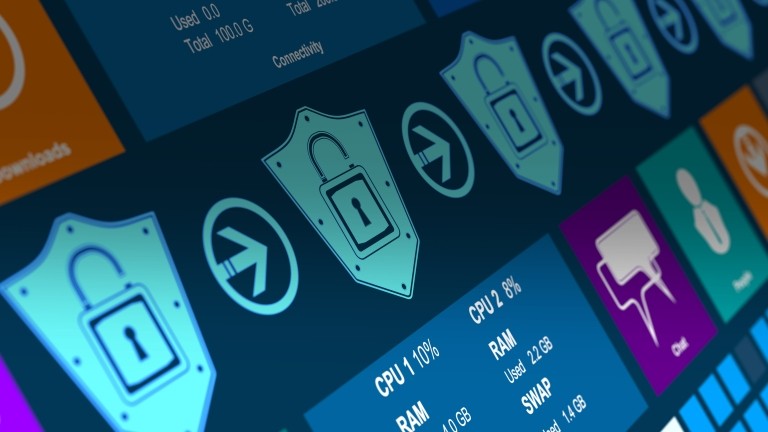
How Networking Supports Zero Defects Manufacturing
In recent years, manufacturing enterprises are accelerating their digital transformation as part of the fourth industrial revolution (Industry 4.0). Industry 4.0 hinges on the introduction of Cyber-Physical Production Systems (CPPS) in the manufacturing shop floor, including Robotic Cells, Smart Sensors, Drones, and Autonomous Guides Vehicles. CPPS can be combined with advanced data analytics techniques (e.g., Predictive Analytics and Artificial Intelligence (AI) algorithms) to enable a host of use cases with a proven ROI (Return on Investment), like flexible production lines, predictive maintenance, quality management, and supply chain optimizations.
Industry 4.0 is empowering a paradigm shift in quality management, also called Quality 4.0. The latter is characterized by increased flexibility, given that most processes rely on digital data processing rather than on inflexible physical processes. Quality 4.0 is associated with a predictive and anticipatory quality management paradigm, which strives to identify and remedy problems before they occur. This leads to significant cost savings for manufacturers, as it eliminates defects and makes optimal use of assets and equipment. It also leads to environmental benefits like the reduction of waste and the optimization of energy usage.
Quality 4.0 ensures a close interaction between planning, assurance, control, and improvement functionalities, which could lead to zero defects and elimination of the waste associated with defects. Quality 4.0 empowers Zero Defects Manufacturing (ZDM). ZDM is the ultimate quality management Vision, which is set to surpass state-of-the-art quality management practices such as SixSigma and Total Quality Management (TQM).
The Digital Enablers of Quality 4.0 and ZDM
Quality 4.0 solutions integrate a variety of cutting-edge digital technologies, which can be thought of as the digital enablers of ZDM. Specifically, the following digital enablers are integral elements of Quality 4.0 systems:
- Software-Defined Networking (SDN)
Quality 4.0 use cases collect large volumes of data from many different devices on the shop floor, including sensors, CPPS systems, and IoT devices. Therefore, industrial networks must provide Quality of Service (QoS) in data collection, while ensuring that data are collected from the right devices, at the right time. Hence, flexible industrial networking operations are required such as Software Defined Networks. The latter facilitates the optimization of network performance and reduce network management costs. Allied Telesis offers a pool of smart SDN solutions that automate the configuration, strengthen security, and ease the management of busy networks at a large scale. Specifically, the Allied Telesis Autonomous Management Framework (AMF), the AMF Security Controller, and the Autonomous Wave Controller (AWC) provide a powerful mix of flexible networking solutions for scalable and cost-effective digital manufacturing deployments. - Cloud Computing
Quality management data are collected and aggregated in the cloud. Thus, Quality 4.0 solutions benefit from the elasticity, capacity, and pay-as-you-go characteristics of cloud computing. As soon as data are on the cloud, they can be analyzed to produce recommendations for quality improvements and the prediction of defects. Allied Telesis facilitates data collection from different areas of the plant thanks to its smart, high throughput Enterprise Wireless Access Points. Furthermore, our AMF Cloud solution automates the management of multiple network devices in the cloud, including the management of sensors and IoT devices. In this way, it provides cost-effective management of cloud-based manufacturing deployments. - Edge Computing
Many of the presented digital quality operations take place close to the field and require real-time performance. For example, potential defects must be detected fast to allow the initiation of remedial actions (e.g., reconfiguration of the production process). In such cases, edge computing systems must be employed to allow for fast data acquisition and real-time control, while optimizing bandwidth and power efficiency for the analytics operations. To ease IoT deployment in the cloud, Allied Telesis provides a scalable edge computing platform called EtherGRID™. The solution leverages the GAUGE.DB™ database architecture of Allied Telesis, along with an extensive portfolio of Industrial Ethernet switching, Wi-Fi, and media interconnectivity products. The latter enables the deployment of state-of-the-art IoT solutions for the manufacturing sector, including solutions that take advantage of the edge computing paradigm's low latency and real-time characteristics. - Big Data Analytics and Artificial Intelligence
Quality 4.0 operations leverage Big Data Analytics and Artificial Intelligence algorithms to derive knowledge about quality management issues and the best ways to remedy them. For example, deep learning techniques are nowadays integrated in robotic cells to allow robots to perform intelligent and automated quality inspection without humans in the loop. Machine learning recommendation engines are also built to provide plant managers with actionable intelligence about quality improvements. Allied Telesis SDN’s products enable the secure and reliable collection of vast amounts of digital data from many different devices. In this way, we empower manufacturers to deploy deep learning systems, which require very large volumes of data for their training and operation.
The integration of the above-listed solutions also enables the implementation of digital representations of quality management systems and processes in the cyber world. These representations are called digital twins and facilitate what-if analysis of quality processes for different combinations of production, process, and control parameters. Digital twins are very powerful tools for accurate and effective digital quality management.
Network flexibility is a foundation for the development, deployment, and operation of Industry 4.0-compliant quality management solutions. Data collection and real-time control operations depend on the availability of the proper network configuration for the quality management tasks at hand. Enterprises cannot afford to manually configure their network infrastructures in order to address the varying requirements of Quality 4.0 use cases. Therefore, they benefit from solutions that automate network configuration and enable centralized management of diverse devices. Such solutions reduce operating costs, minimize the probability of misconfigurations and lead to a tangible ROI for manufacturing enterprises.
Allied Telesis provides a very strong value proposition at this front: Vista Manager automates and optimizes the operation of wired and wireless networks while enabling their management from a single-entry +point. You may explore its compelling features by accessing more information about the Autonomous Management Framework (AMF) and Autonomous Wave Control (AWC) components that empower its operation. We also recommend having a closer look at how Vista Manager visualizes network management information in an easy-to-use, operator-friendly dashboard. Overall, the automation and intelligence features of the Vista Manager enables manufacturing enterprises to start their Quality 4.0 deployments on the right foot.
To learn more, contact sales today.
Related




